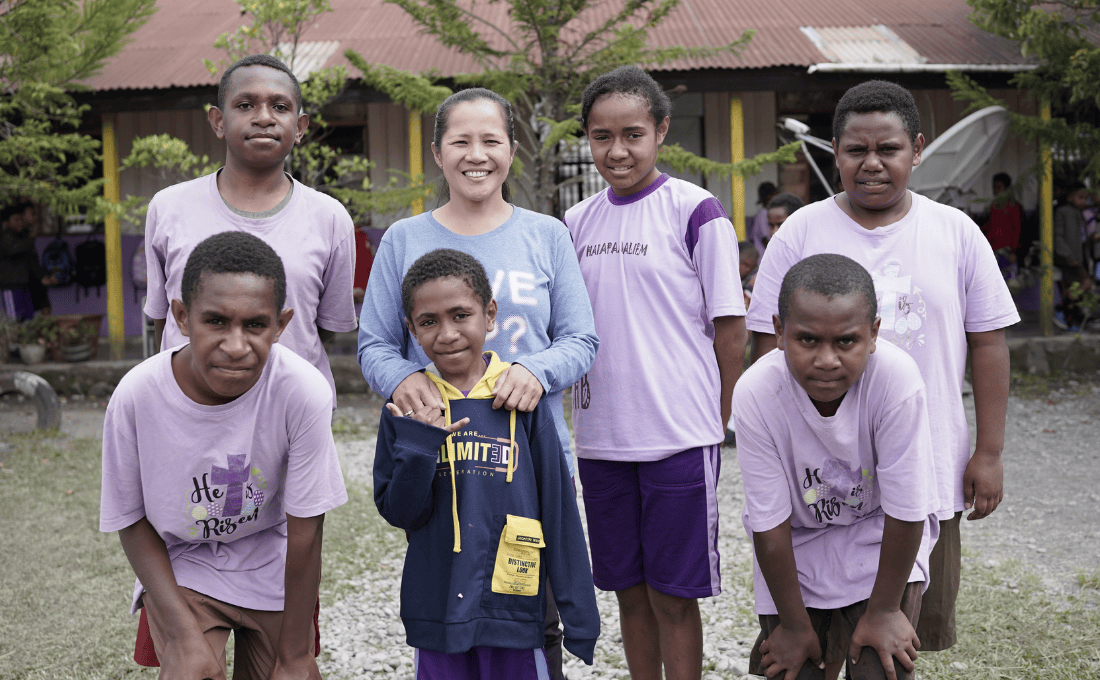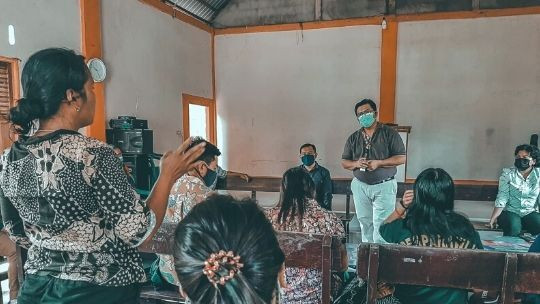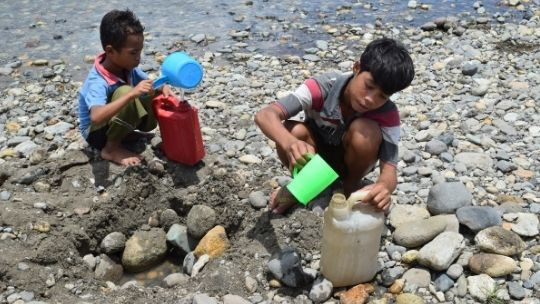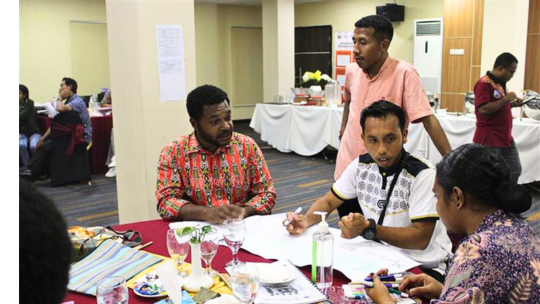The Impact of Educational Support for Underprivileged Indonesian Children!

Indonesia, with all its wealth and potential, is still overshadowed by the issue of inequality in access to education. Many Indonesian children, especially those from underprivileged families, face difficulties in obtaining a decent education. Economic limitations, restricted access, and socio-cultural factors become obstacles that prevent them from achieving their dreams and pursuing a better future.
In fact, education is the right of every child and plays a vital role in breaking the cycle of poverty. Through education, underprivileged children can gain the knowledge and skills needed to improve their quality of life and build a brighter future. Educational support, in its various forms, is key to opening doors of opportunity and creating equality for all Indonesian children.
Educational support can come in many forms, from scholarships and free schools, to mentoring and guidance programmes. All these forms of support share the same goal: to enable children to receive a quality education and reach their full potential.
This article will delve into the positive impact of educational support for underprivileged Indonesian children. By understanding the importance of educational support, it is hoped that readers will be moved to participate and help underprivileged children obtain a proper education.
Because education is the best investment for the nation's future, and every Indonesian child deserves an equal opportunity to learn and grow.
Challenges in Educating Underprivileged Children
Unfortunately, the path to a proper education is not always easy, especially for underprivileged Indonesian children. Various obstacles stand in the way, making access to education difficult and sometimes even impossible for them.
Unfortunately, the path to a proper education is not always easy, especially for underprivileged Indonesian children. Various obstacles stand in the way, making access to education difficult and sometimes even impossible for them.
- Economic Factors
Economics is one of the main barriers. Educational costs, such as tuition fees, books, uniforms, and transportation, are often a heavy burden for underprivileged families. Many children are forced to work to help their families, thus sacrificing their education.
This highlights the importance of educational support, such as scholarships or financial aid, to help these children stay in school and achieve a better future.
- Limited Access
Limited access is a serious obstacle, especially in remote areas. Distant school locations, inadequate infrastructure, and a lack of learning facilities and low teacher quality make it difficult for children to obtain a quality education. This gap in educational access needs to be addressed immediately so that all Indonesian children, without exception, can enjoy a proper education.
- Socio-Cultural Factors
In addition to economic factors and access, socio-cultural factors also play a role. Low parental awareness of the importance of education, as well as stigma and discrimination against children from poor families, can be barriers to accessing education. Efforts are needed to raise public awareness of the importance of education for all children, and to eliminate existing stigma and discrimination.
All these challenges demonstrate the complexity of the educational problems faced by underprivileged children in Indonesia. Therefore, support from various parties, including the government, private institutions, and the community, is needed to ensure that every Indonesian child, regardless of their economic background, can have access to a quality education.
In this way, we can achieve educational equality and provide equal opportunities for all children to achieve a better future.
Transforming Lives Through Educational Support
Educational support for underprivileged Indonesian children is not merely about providing access to schooling. Beyond that, this support has an extraordinary positive impact, capable of transforming their lives and opening doors to a brighter future.
- Improving Quality of Life
Improving quality of life is one of the most tangible impacts. Education equips children with the knowledge and skills needed to compete in the job market. With this provision, they can secure better job opportunities, improve their family's living standards, and ultimately break free from the cycle of poverty.
Education also fosters independence, teaching children to think critically, solve problems, and make wise decisions, enabling them to become self-reliant individuals who contribute positively to society.
- Developing Children's Potential
Furthermore, education plays a vital role in developing children's potential. Every child has unique talents and interests that need to be honed. Through education, children are given the opportunity to explore their potential, develop their talents, and pursue their interests.
They can participate in extracurricular activities, join self-development programmes, and receive proper guidance to reach their full potential. By supporting children in developing their potential, we help them discover their identity and achieve their dreams.
- Building the Nation's Future Generation
The positive impact of education also extends to a broader scale, namely building the nation's future generation. Educated children are valuable assets for the nation's progress. Education not only transfers knowledge but also shapes character, morals, and social awareness.
Children learn about noble values, ethics, and their responsibilities as citizens. They grow into individuals of integrity, open-mindedness, and concern for others. Thus, education plays a crucial role in creating a more advanced, civilised, and prosperous society.
Through the positive impact of education, we can achieve educational equality and provide equal opportunities for all children to succeed. Educational support is not merely charity but a long-term investment for the nation's future.
By supporting the education of underprivileged children, we are planting the seeds of positive change that will bear fruit in the future
Various Forms of Educational Support
eeing the importance of the impact of educational support for underprivileged Indonesian children, various parties have extended a helping hand to assist them in gaining better access to education. Diverse forms of support have emerged to address different challenges and needs.
1. Scholarship Programmes
Scholarship programmes have become one of the most widely utilised forms of educational assistance. Scholarships can come from the government, private sector, or social institutions. Government scholarship programmes, such as Bidikmisi and KIP Kuliah, provide opportunities for high-achieving students from underprivileged families to continue their education at the tertiary level.
Private institutions and social organisations also offer numerous scholarship programmes, both for school and university levels. These scholarships greatly help alleviate the burden of educational costs and provide motivation for children to continue learning.
2. Free Schools
In addition to scholarships, free schools are a very helpful alternative. The Indonesian government has launched free school programmes at various levels of education, from primary to senior high school.
This programme is crucial in increasing access to education for underprivileged children, given that educational costs are often the main obstacle. Social institutions also play a role by establishing free schools or providing educational cost subsidies for children in need.
3. Guidance and Mentoring Programmes
Guidance and mentoring programmes also play a vital role. Tutoring, mentoring, and counselling programmes can help underprivileged children improve their academic performance, develop learning skills, and overcome learning difficulties.
Moreover, these programmes also provide much-needed psychosocial support for underprivileged children. Guidance and mentoring help them increase their self-confidence, learning motivation, and develop their potential optimally.
4. Wahana Visi Indonesia
Wahana Visi Indonesia is one of the social institutions actively supporting children and increasing access to education for underprivileged Indonesian children.
Although it does not provide direct financial assistance for education, Wahana Visi's programmes contribute to creating a conducive environment for the education of underprivileged children. Early childhood education development programmes, teacher training, and community empowerment aim to improve the quality of education and create a supportive learning environment.
These various forms of educational support demonstrate that many parties care about the future of Indonesian children. By jointly supporting children and realising educational equality, we can build a generation of the nation's successors who are intelligent, have character, and are competitive.
An Investment for the Nation's Future!
Educational support for underprivileged Indonesian children has a tremendous positive impact, capable of transforming their lives and paving the way for a brighter future.
Through education, underprivileged children can improve their quality of life, develop their potential, and become independent and competitive individuals. Moreover, educational support also contributes to building a generation of the nation's successors who are intelligent, have character, and care for others.
Therefore, let us jointly support underprivileged Indonesian children to obtain a proper education. Our participation, however small, can make a big difference in their lives. We can contribute in various ways, from donations and volunteering to spreading awareness of the importance of education.
Remember that educational support is not merely charity but a crucial investment for the nation's future. By investing in the education of underprivileged children, we are planting the seeds of positive change that will bear fruit in the future. Every Indonesian child deserves an equal opportunity to learn and grow, and we all have a role to play in making that happen.
Let us join hands, unite our steps, to educate the nation's children. Because Indonesia's future lies in their hands, a generation of successors who are intelligent, have character, and are full of hope.



